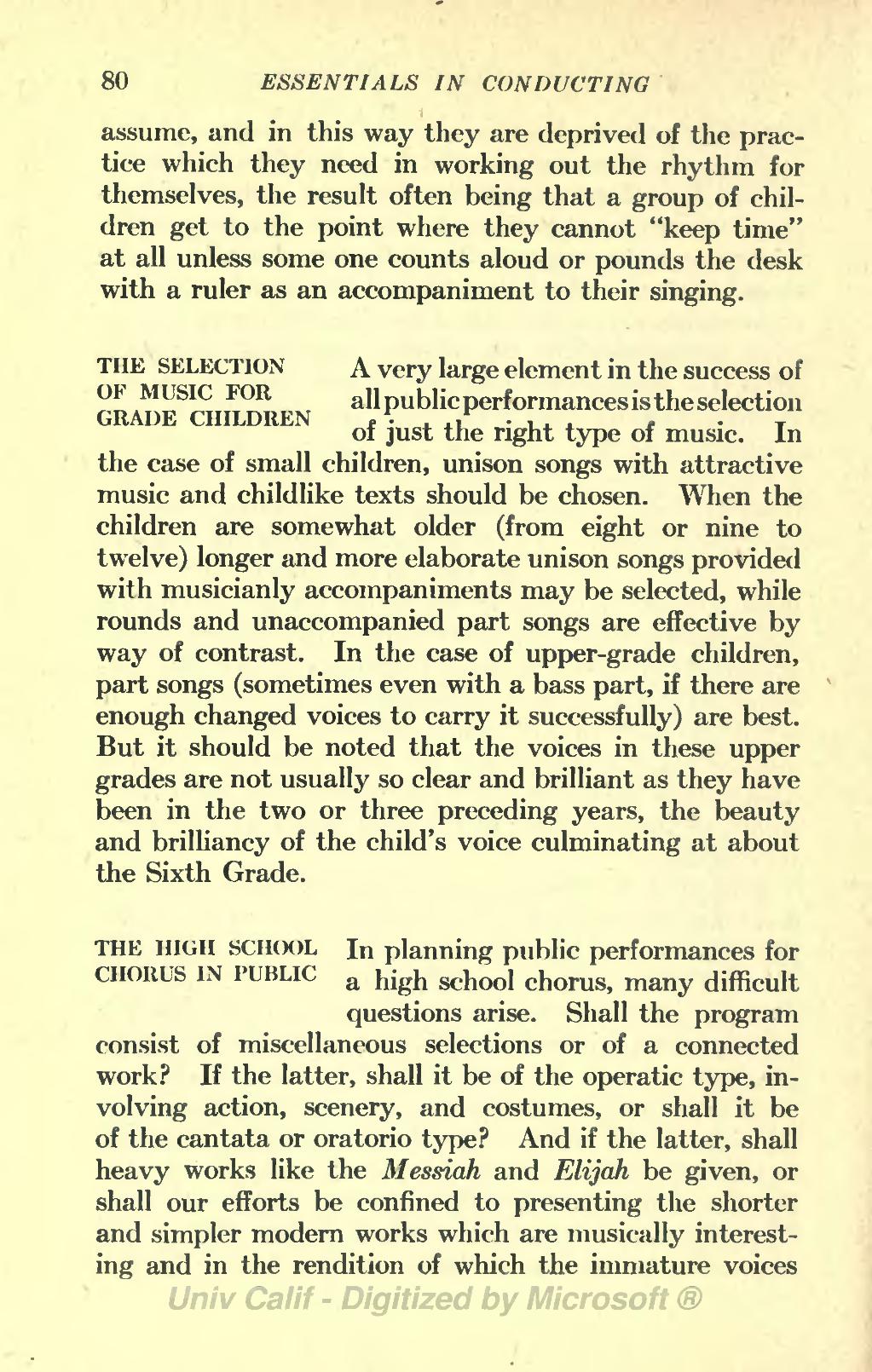assume, and in this way they are deprived of the practice which they need in working out the rhythm for themselves, the result often being that a group of children get to the point where they cannot "keep time" at all unless some one counts aloud or pounds the desk with a ruler as an accompaniment to their singing.
THE SELECTION OF MUSIC FOR GRADE CHILDRENA very large element in the success of all public performances is the selection of just the right type of music. In the case of small children, unison songs with attractive music and childlike texts should be chosen. When the children are somewhat older (from eight or nine to twelve) longer and more elaborate unison songs provided with musicianly accompaniments may be selected, while rounds and unaccompanied part songs are effective by way of contrast. In the case of upper-grade children, part songs (sometimes even with a bass part, if there are enough changed voices to carry it successfully) are best. But it should be noted that the voices in these upper grades are not usually so clear and brilliant as they have been in the two or three preceding years, the beauty and brilliancy of the child's voice culminating at about the Sixth Grade.
THE HIGH SCHOOL CHORUS IN PUBLICIn planning public performances for a high school chorus, many difficult questions arise. Shall the program consist of miscellaneous selections or of a connected work? If the latter, shall it be of the operatic type, involving action, scenery, and costumes, or shall it be of the cantata or oratorio type? And if the latter, shall heavy works like the Messiah and Elijah be given, or shall our efforts be confined to presenting the shorter and simpler modern works which are musically interesting and in the rendition of which the immature voices